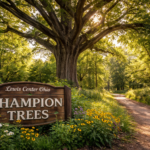The Oxford Hills is not merely a geographic location—it’s a living canvas of culture, landscape, and human experience. Nestled in the heart of Oxford County, this region has evolved from a quiet rural enclave into a vibrant hub that balances modern development with its deep-rooted heritage. Within its rolling hills, pristine lakes, and small-town communities, The Oxford Hills captures the charm of New England’s rural beauty while embracing sustainable living and tourism. For travelers and residents alike, it represents a rare blend of serenity, opportunity, and historical identity. This article explores The Oxford Hills in its full dimension—its geography, culture, education, economy, environment, and the lifestyle that defines it. Whether you’re planning to visit, invest, or relocate, understanding The Oxford Hills is to understand the dynamic rhythm of a community grounded in tradition yet shaped by progress.
The Geography and Natural Landscape of The Oxford Hills
The Oxford Hills is a region of gentle contrasts—rolling terrain, dense forests, and crystalline lakes that define the natural splendor of Oxford County. Stretching across central Maine, this area is surrounded by a network of scenic byways and small towns that preserve the soul of rural America. The topography here is defined by low-lying hills that merge into the greater Appalachian foothills, offering breathtaking vistas and abundant recreational opportunities. The area is a haven for outdoor enthusiasts—hiking, fishing, kayaking, and skiing are year-round activities that bring both locals and tourists together. The climate supports four distinct seasons, each with its own identity, from vibrant autumn foliage to serene snow-covered landscapes. In recent years, ecological conservation efforts have gained prominence, focusing on protecting the unique flora and fauna that call The Oxford Hills home.
Historical Roots and the Formation of Identity
The Oxford Hills’ story is a journey through time, marked by resilience and reinvention. Originally settled in the late 18th century, the region developed around small farming communities, sawmills, and early industries powered by nearby rivers. These settlements became the foundation of Oxford County’s economic and cultural identity. By the mid-19th century, the area’s reputation for craftsmanship—particularly in furniture making and textiles—cemented its role as an industrious yet close-knit community. The legacy of those early settlers remains visible in the preserved architecture and family-owned farms that dot the landscape. Today, The Oxford Hills retains that sense of continuity, merging its historic charm with the needs of a modern economy. Local museums and cultural centers chronicle this transformation, ensuring that future generations remain connected to their roots.
Table 1: Key Historical Developments in The Oxford Hills
| Period | Key Event | Impact on Region |
|---|---|---|
| 1780–1820 | Early Settlement | Formation of rural farming communities |
| 1830–1900 | Industrial Growth | Establishment of sawmills and textile workshops |
| 1920–1950 | Decline of Local Industry | Shift toward service-based economy |
| 1980–2000 | Tourism Expansion | Growth in outdoor recreation and real estate |
| 2000–Present | Sustainability Initiatives | Focus on green energy and cultural preservation |
The Oxford Hills as a Modern Community
Modern life in The Oxford Hills is a study in balance—between the demands of economic growth and the desire to preserve natural integrity. The community is defined by small towns such as Norway, Oxford, and Paris, each contributing distinct characteristics to the broader identity of the region. These towns have invested in local entrepreneurship, from artisanal crafts to farm-to-table dining experiences. The Oxford Casino, local breweries, and seasonal festivals bring economic vitality, while community organizations emphasize volunteerism and civic engagement. Technology has also found a place here, with local initiatives promoting digital literacy and remote working opportunities. “The Oxford Hills isn’t just a place—it’s a mindset,” says local historian Amelia Watkins. “It’s about living close to nature while staying connected to the world.”
Education and Cultural Growth
Education has long been a cornerstone of The Oxford Hills’ progress. The region’s public school system, along with Oxford Hills Comprehensive High School, reflects a commitment to holistic education—blending academic excellence with practical skills. Community colleges and local workshops offer vocational training in renewable energy, forestry, and health sciences. Cultural literacy is equally important here. Art centers, local theaters, and annual fairs serve as platforms for creative expression and heritage preservation. Youth programs are increasingly oriented toward sustainable development, nurturing an awareness of environmental responsibility. These educational and cultural investments ensure that The Oxford Hills remains not only a scenic place to live but also a fertile ground for intellectual and artistic growth.
Economic Landscape: From Industry to Innovation
While traditional industries once dominated the local economy, today’s Oxford Hills thrives on diversification. Agriculture remains vital—especially organic farming and dairy production—but small businesses, technology startups, and tourism have redefined the economic fabric. The service sector has seen considerable growth, driven by hospitality, healthcare, and outdoor recreation. Local entrepreneurship has flourished due to community funding programs and cooperative networks. The proximity to Portland and the broader Maine economy also enables regional collaboration. The Oxford Hills now promotes itself as a model for sustainable rural development, combining innovation with community-driven planning.
Table 2: Economic Sectors in The Oxford Hills
| Sector | Main Activities | Employment Share |
|---|---|---|
| Agriculture | Organic farms, dairy, forestry | 20% |
| Tourism & Hospitality | Resorts, skiing, local events | 25% |
| Technology & Services | Remote work, education, healthcare | 30% |
| Manufacturing | Woodworking, small-scale production | 10% |
| Renewable Energy | Solar, wind, and eco-projects | 15% |
Tourism and Recreation: Nature Meets Experience
Tourism in The Oxford Hills is more than sightseeing—it’s about immersion in the rhythm of rural Maine. Visitors come for the picturesque lakes like Thompson Lake and Norway Lake, the hiking trails of Roberts Farm Preserve, and the winter skiing at nearby slopes. Seasonal festivals such as the Oxford County Fair and local farmers’ markets highlight the connection between community and nature. Adventure seekers explore biking trails and kayaking routes, while others find solace in wellness retreats and yoga studios overlooking serene waters. Local tourism boards emphasize sustainable travel, encouraging visitors to leave minimal ecological footprints. The Oxford Hills’ approach to tourism is built on respect—for the land, for the culture, and for shared experiences that transcend generations.
The Social Fabric: Diversity and Community Spirit
Community life in The Oxford Hills thrives on inclusivity and mutual support. The population, while modest, reflects growing diversity, attracting newcomers from across the U.S. and abroad. These new residents contribute to the cultural mosaic through art, cuisine, and entrepreneurship. Local festivals often serve as platforms for celebrating this diversity, blending traditional Maine customs with international influences. Volunteer networks and nonprofit organizations strengthen social bonds, addressing issues like food insecurity and mental health awareness. The cooperative model—seen in food co-ops and community gardens—embodies the Oxford Hills’ ethos of shared prosperity. “Our community spirit is our greatest resource,” notes resident activist Mark Peters. “It’s what sustains us through every challenge and every triumph.”
Environmental Sustainability and Green Living
The Oxford Hills has emerged as a leader in sustainability, championing renewable energy and ecological conservation. Local initiatives promote solar panel installations, energy-efficient housing, and sustainable farming practices. Reforestation projects and wildlife corridors protect native species, while clean water campaigns safeguard lakes and rivers. Recycling programs and zero-waste markets have gained traction, reflecting a broader shift toward environmental accountability. Residents take pride in maintaining their natural surroundings, recognizing that preservation is not just an obligation but a privilege. The Oxford Hills’ sustainability model serves as an example of how rural regions can thrive without compromising ecological balance.
Infrastructure and Modern Connectivity
Despite its rural setting, The Oxford Hills has made significant strides in modern infrastructure. High-speed internet has enabled remote work and digital entrepreneurship, while transportation improvements have enhanced connectivity with major cities. Healthcare access has expanded through regional hospitals and telemedicine services. Community housing projects focus on affordability and environmental design, ensuring inclusivity in development. The integration of smart technologies into local governance—such as energy monitoring systems and public data transparency—reflects an intelligent and forward-thinking approach to civic management. These developments position The Oxford Hills as a model of rural modernization, where progress complements rather than disrupts tradition.
Art, Music, and Cultural Expressions
Creativity thrives in The Oxford Hills. The region’s art galleries, music festivals, and cultural exhibitions celebrate both local talent and visiting artists. Artisans continue the legacy of craftsmanship—working with wood, ceramics, and textiles that reflect Maine’s natural aesthetics. The music scene ranges from folk and country performances at community halls to contemporary concerts in outdoor venues. Literature, too, has found a home here; several local authors draw inspiration from the landscape and its stories. The intersection of art and environment reinforces the region’s identity as a living gallery—one where creativity is both a heritage and a hope.
Living in The Oxford Hills: A Way of Life
For residents, The Oxford Hills represents a quality of life defined by simplicity, connection, and balance. The cost of living remains reasonable compared to urban centers, yet access to amenities continues to improve. Families are drawn by the strong school system, healthcare options, and outdoor lifestyle. Retirement communities flourish, offering tranquility and community engagement for seniors. Small businesses thrive on loyalty and word-of-mouth rather than corporate advertising. “There’s a rhythm to life here,” says resident Sarah Donnelly. “You wake up to mist over the hills, work with purpose, and end the day with gratitude.”
Challenges and the Road Ahead
Like any community, The Oxford Hills faces challenges—housing affordability, seasonal unemployment, and balancing growth with preservation. However, community leadership has embraced forward-thinking policies, encouraging sustainable development and digital innovation. The collaboration between public institutions, private investors, and civic groups continues to strengthen resilience. The Oxford Hills’ future lies in its ability to evolve while retaining its essence—a region that grows thoughtfully, honors its environment, and uplifts its people.
Conclusion
The Oxford Hills is more than a geographic term—it’s a living narrative of past, present, and future. It stands as a symbol of rural resilience, where progress and preservation coexist in delicate harmony. Visitors find inspiration in its landscapes; residents find purpose in its community. The region’s transformation from a quiet agricultural settlement to a forward-thinking, environmentally conscious hub reflects not just economic evolution but a philosophy of life. As local poet Ellen Grayson once wrote, “In the folds of the hills, time doesn’t pass—it gathers.” The Oxford Hills continues to gather the best of human endeavor and natural grace, offering a vision of what communities can become when they honor their roots while reaching for the horizon.
FAQs
Q1: What makes The Oxford Hills unique compared to other regions in Maine?
The Oxford Hills combines rural tranquility with modern innovation. Its emphasis on sustainability, education, and community engagement sets it apart, offering a balance between nature and progress rarely found elsewhere in Maine.
Q2: Are there job opportunities in The Oxford Hills for new residents?
Yes, the region has growing opportunities in healthcare, technology, tourism, and renewable energy. Local entrepreneurship is encouraged through cooperative programs and small business grants.
Q3: What are the main attractions for tourists in The Oxford Hills?
Tourists can explore scenic lakes, hiking trails, local art centers, and seasonal festivals. Activities such as kayaking, skiing, and wildlife watching are among the top experiences.
Q4: Is The Oxford Hills a good place for families and retirees?
Absolutely. The area offers strong schools, affordable housing, low crime rates, and excellent healthcare facilities, making it ideal for families and retirees alike.
Q5: How is The Oxford Hills contributing to environmental sustainability?
The community invests in solar energy, sustainable farming, water conservation, and reforestation. Local residents actively participate in maintaining an eco-friendly and carbon-conscious lifestyle.











